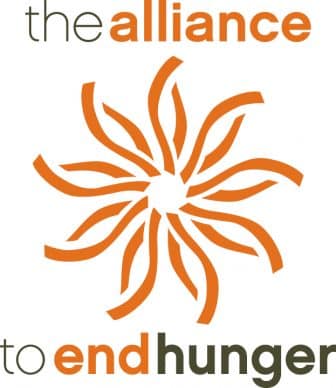In many developing countries, having access to reachable, sanitary water is seen as a luxury. Many developing nations face challenges in promoting a humane standard of living due to the lack of sanitation resources. And although water accounts for 70% of the surface area on Earth, only 2.5% of this is freshwater and safe to consume. As a result, sanitation facilities are commonplace and provide tons of clean water daily for use in toilets, sinks, showers and other outlets without any effort from the user. Without the implementation of these sanitation facilities, harmful bacteria, feces, worms, insects, industrial chemicals and sewage would be present in drinking water. To compound this crisis, rapid population growth has led to the increase in the epidemic of water-borne illnesses, which account for over 5 million deaths each year 1. This staggering statistic amounts to 80% of deaths in developing nations according to the United Nations 2. Therefore, providing communities in developing nations with the infrastructure for sustainable water sources can have a profound impact on increasing the standard of living for over a billion of the world’s inhabitants.
Unsanitary water costs the world economy $260 billion annually due to the healthcare costs and lost productivity that water-borne diseases bring.
Young girls and women are particularly affected by the lack of sanitation facilities. Due to traditional gender roles, women take on the duty of traveling far distances to obtain clean water. They carry this burden on top of cooking, cleaning and caretaking for the members of their home. The time it takes women to perform domestic duties daily prevents them from obtaining income-generating work. Due to these factors, women lack the resources to gaining transferable skills and are locked into a cyclical routine that induces poverty. This debilitating cycle starts young, as adolescent girls are eliminated from educational opportunities due to either the lack of toilets in their schools or the responsibility of helping their mothers carry water back home. While girls are hampered with the weight of the water they carry during trips to the water source, they are also susceptible to sexual assault and animal attacks as they travel through rural areas. These disproportionate factors have contributed to the current system of intergenerational poverty in developing nations, creating unhealthy living conditions for billions of people. By providing sanitary water facilities in these communities, studies have shown that women gain social capital when they are able to focus their energies on small-scale enterprises. Having access to clean water gives women time to pursue work that can increase their wealth and lead to the economic advancement of their communities. By providing sanitary water facilities in these communities, studies have shown that women gain social capital when they are able to focus their energies on small-scale enterprises. Having access to clean water gives women time to pursue work that can increase their wealth and lead to the economic advancement of their communities.
Discover our 100% Zakat Promise.
Donate your Zakat to our Thirst Relief program and 100% of your donation will go to build wells for communities in over 11 countries around the world.
Meanwhile, people that live in communities that rely on unsanitary water face declining health conditions and increased unemployment. They have no source for water other than the wastewater available to them, which has a devastating impact on their environment. Because unsanitary water has harmed the socioeconomic development of vulnerable communities, billions of people worldwide are left without access to a basic commodity. According to economic research by the World Bank, unsanitary water costs the world economy $260 billion annually due to the healthcare costs and lost productivity that water-borne diseases bring 3. Invested elsewhere, this money could be used to further benefit socioeconomic development for the majority of the world. This is why it is so important to address the issue of water sanitation. While water is an essential component for maintaining a healthy lifestyle and society, developing nations do not have the infrastructure to maintain a commodity that we take for granted.
With access to sanitary water, young girls have the ability to prioritize education, women can pursue income-generating opportunities, and communities can exponentially improve their economic conditions.
There is no doubt that having access to clean water is empowering to developing nations as it leads to sustainable economic growth. Penny Appeal’s Thirst Relief program works on the local-level in 11 countries to create self-reliant communities through sustainable development. The water facilities that we’ve created have given communities not only a sense of empowerment, but also a route out of poverty and a rise in gender equity. With access to sanitary water, young girls have the ability to prioritize education, women can pursue income-generating opportunities, and communities can exponentially improve their economic conditions. A donation to Thirst Relief serves as a statement against unequal power structures that dictate who deserves access to clean water and good health. Donate today to build clean water facilities that can change the lives of those in vulnerable communities for generations to come.

This article was written by Sofronia Gould. Sofronia serves as a Marketing & Communications Intern at Penny Appeal USA. She is currently an undergraduate student at Syracuse University.
Cited Sources:
- Nishimoto, S. (2004). Water Governance for Poverty Reduction. Retrieved from http://www.undp.org/content/dam/aplaws/publication/en/publications/environment-energy/www-ee-library/water-governance/water-governance-for-poverty-reduction/UNDP_Water Governance for Poverty Reduction.pdf
- United Nations. (2003). ‘Water-Related Diseases Responsible For 80% Of All Illnesses, Deaths In Developing World’. Retrieved from http://www.un.org/press/en/2003/sgsm8707.doc.htm
- Walsh, C., & Cieslik, N. (2013). WB Confronts US$260 Billion a Year in Global Economic Losses from Lack of Sanitation. Retrieved from http://www.worldbank.org/en/news/press-release/2013/04/19/wb-confronts-us-260-billion-a-year-in-global-economic-losses-from-lack-of-sanitation









